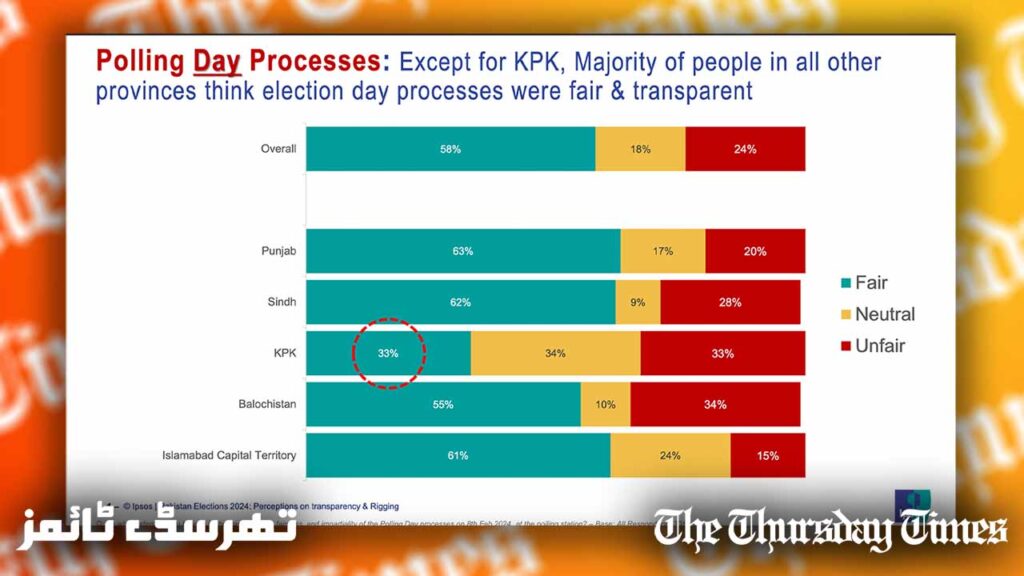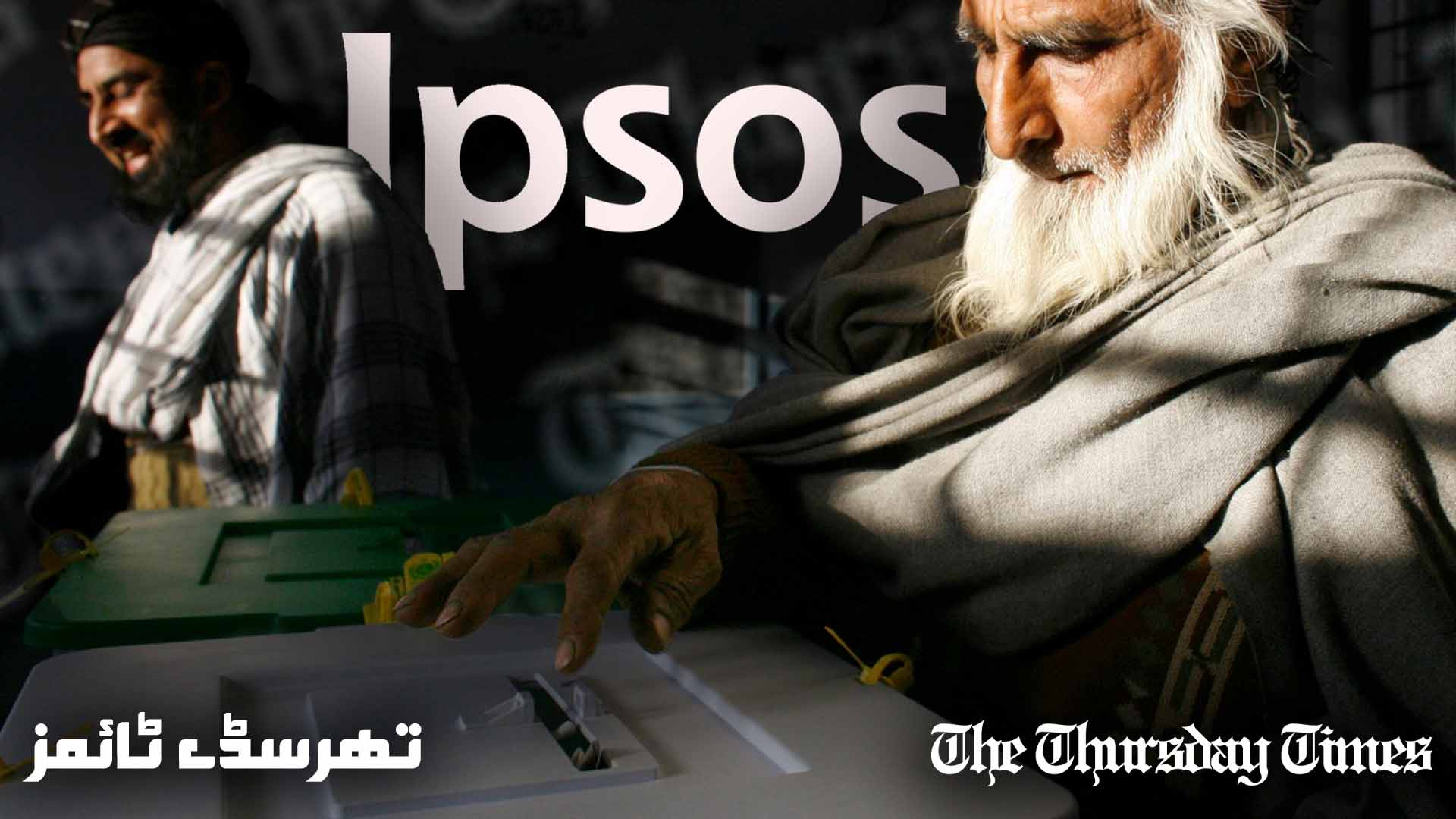PARIS (The Thursday Times) — A recent IPSOS report titled “Pakistan General Elections 2024: Perceptions on Transparency & Rigging” has cast a spotlight on the varying degrees of trust in the electoral processes across different regions of Pakistan, with a particular focus on the perceptions held by residents of Khyber Pakhtunkhwa (KPK). Despite the overall trend of skepticism that pervades the national sentiment towards the elections, it is crucial to delve into the nuanced views that emerge from the data, especially in the context of KPK.
Nationally, the sentiment towards the electoral process is predominantly negative, with a significant majority expressing doubts about the fairness and transparency of the 2024 General Elections. This sentiment is reflected in the statistics that show 58% of respondents across Pakistan viewing the elections as unfair, a mere 24% considering them fair, and the rest remaining neutral. Such widespread skepticism underscores the challenges facing Pakistan’s democratic processes and highlights the pressing need for reforms to bolster public trust in electoral integrity.

The detailed breakdown of perceptions by province offers insightful contrasts and similarities. For instance, Punjab, Sindh, and the Islamabad Capital Territory (ICT) report high levels of dissatisfaction, with majorities in each province questioning the fairness of the elections. Balochistan, while slightly more optimistic, still shows a majority perception of unfairness. Against this backdrop, KPK presents an interesting case. The province is perceived to have the most unfair elections among all regions, with equal portions of the population finding the elections unfair and fair, and a significant number remaining neutral. This polarization within KPK reflects a deeply divided trust in the electoral process, indicating both the challenges and opportunities for electoral reforms within the province.
The IPSOS report’s findings not only highlight the critical issues of transparency and fairness in Pakistan’s electoral system but also signal a broader concern regarding the health of the country’s democracy. The particular focus on KPK, where perceptions of electoral fairness are notably divided, suggests a complex landscape of political trust that requires careful attention and targeted interventions. To move forward, it is imperative for electoral authorities, policymakers, and civil society to engage in a concerted effort to address the root causes of electoral skepticism. By implementing reforms that ensure greater transparency, accountability, and inclusivity in the electoral process, Pakistan can take significant steps towards restoring public confidence in its democratic institutions and ensuring that future elections are not only conducted fairly but are perceived as such by its citizens.




